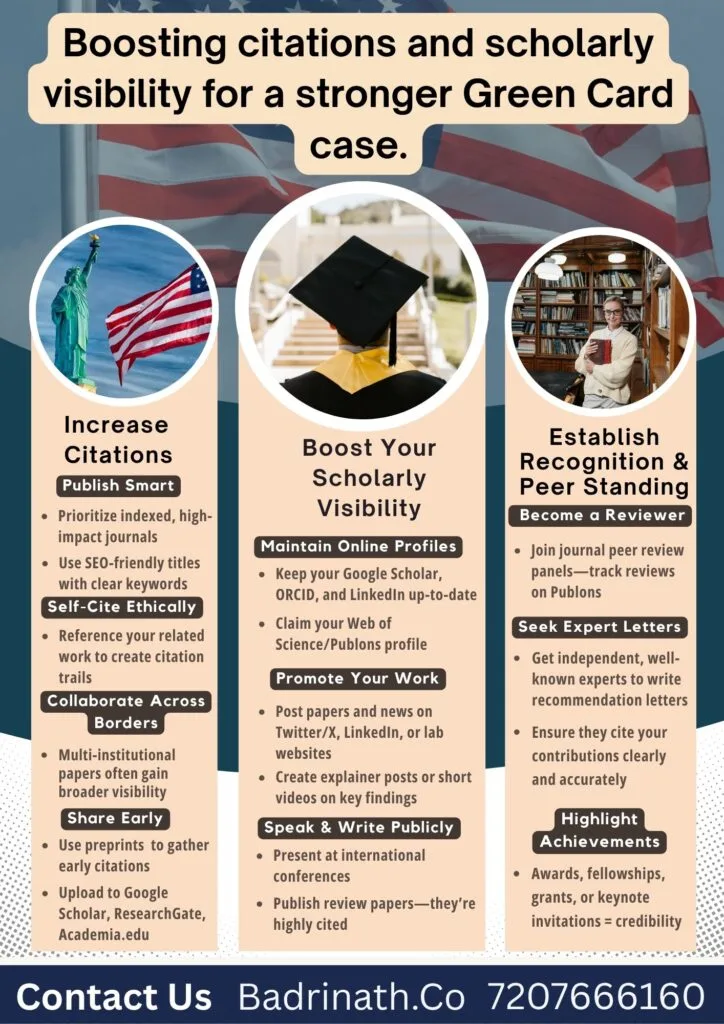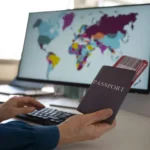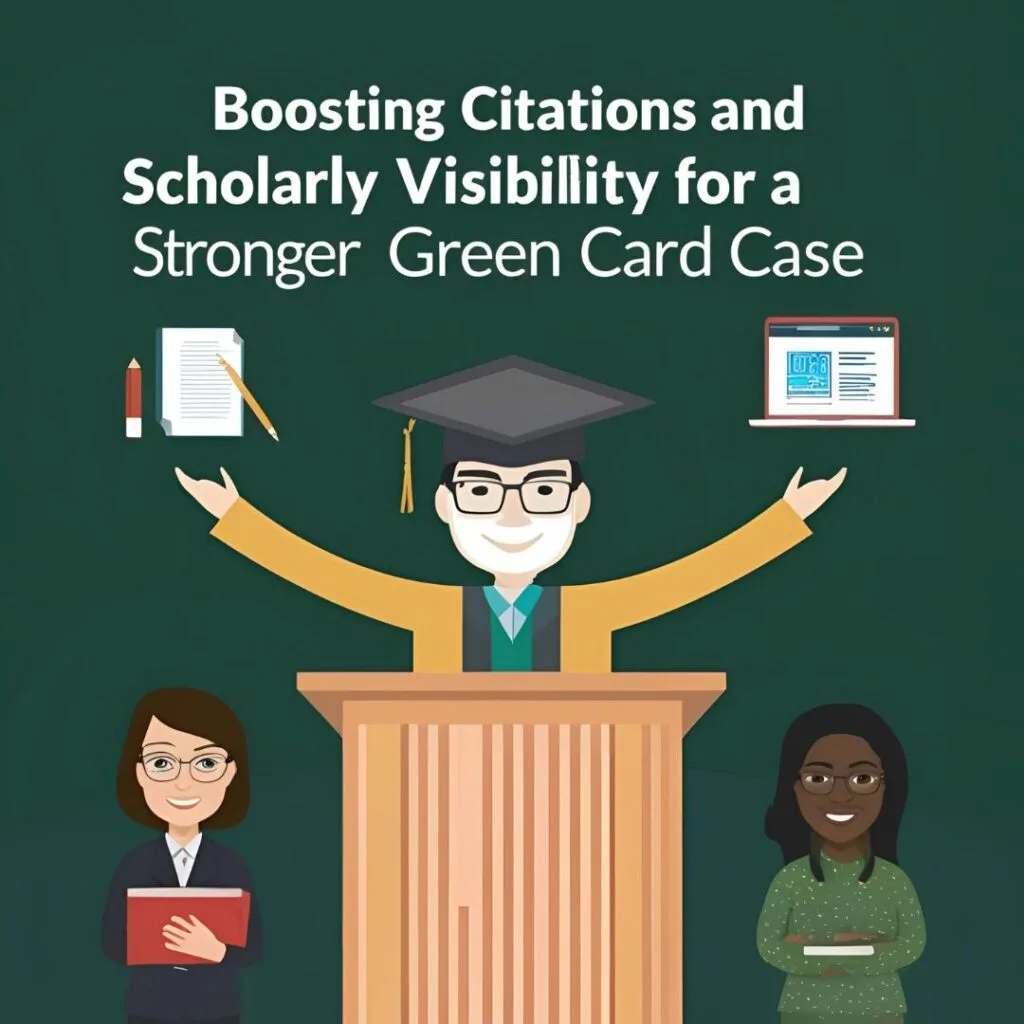Researchers
Researchers, scientists, and academics pursuing employment-based immigration to the United States, scholarly impact serves as compelling evidence of exceptional ability. While there’s no magic number of citations required for success, strategic citation building and scholarly visibility can significantly strengthen EB-1 and EB-2 Green Card applications.

Understanding Citation Impact in Immigration Cases of Researchers
The United States Citizenship and Immigration Services (USCIS) evaluates EB-1 applications based on evidence of “sustained national or international acclaim” in your field. Generally citations demonstrate that your research has influenced others and contributed meaningfully to your discipline.www.cfuis.com For EB-1A (Extraordinary Ability) and EB-1B (Outstanding Professors and Researchers) categories, citations help satisfy multiple criteria:
- Evidence of original scientific or scholarly contributions of major significance
- Authorship of scholarly articles in professional publications
- Published material about your work in professional publications
USCIS assesses citations holistically rather than focusing solely on quantity. The quality, source, and context of citations carry significant weight in demonstrating your standing in your field.www.greencard.inc
Strategic Approaches to Boost Citations and Visibility
Focus on Quality Publications
Prioritize publishing in high-impact, peer-reviewed journals within your discipline. Articles in prestigious journals typically attract more citations and carry greater weight with USCIS adjudicators. A single highly-cited paper in a top-tier journal often outweighs multiple publications in lesser-known outlets.www.cfuis.com
Develop Strategic Collaborations
Co-author papers with established researchers, particularly those with international recognition. These collaborations expand your network and increase the visibility of your work. Strategic international collaborations demonstrate global impact, which aligns perfectly with USCIS’s “international acclaim” standard.www.cfuis.com
Leverage Conference Presentations
Present your research at prominent conferences to increase exposure. Moreover conference proceedings often lead to citations and demonstrate active engagement in your field. Document each presentation carefully as supporting evidence for your petition.
Maintain Comprehensive Citation Tracking
Use tools like Google Scholar, Web of Science, or Scopus to monitor your citation metrics. These platforms provide valuable analytics about who is citing your work and in what context. Export comprehensive citation reports to include with your application.www.cfuis.com
Create a Scholarly Profile
Establish profiles on academic platforms like ResearchGate, ORCID, and Academia.edu. However, these platforms increase your work’s discoverability and provide additional metrics of scholarly impact beyond traditional citations.
Beyond Citations: Strengthening Your Green Card Application
While citations are valuable, a robust application incorporates multiple forms of evidence:
Secure Expert Testimonials
Obtain detailed recommendation letters from prominent figures in your field who can specifically address the significance of your cited work. These letters should explicitly connect your research to advancements in your discipline.www.cfuis.com
Document Media Coverage
Compile mentions of your research in mainstream media, industry publications, or academic news outlets. Basically this evidence satisfies the criterion for “published material about you in professional publications.”www.uscis.gov
Highlight Leadership Roles
Document your participation in editorial boards, peer review activities, or leadership positions in professional organizations. Generally these roles demonstrate recognition of your expertise by peers.www.greencard.inc
Contextualize Your Impact
When presenting citation evidence, explain how your work has influenced your field. Provide context about citation norms in your discipline, as expectations vary significantly between fields.www.greencard.inc
Conclusion
Building a strong citation profile requires sustained effort and strategic planning. Moreover start early, focus on quality over quantity, and document your scholarly impact comprehensively. While citations alone won’t guarantee approval, they provide compelling evidence of your exceptional ability and strengthen your case for permanent residency in the United States.

9. Track and Improve Citation Metrics
Use tools to monitor and enhance your citation profile:
- Google Scholar: citation alerts, trends
- Scopus and Web of Science: h-index, collaboration maps
- ORCID: helps standardize author name variants and also
- Publons: track your reviewer contributions, boosting credibility
10. Ensure Proper Citation Practices
Ensure others can easily cite your work:
- Use clear titles and relevant keywords
- Include DOIs in citations and social shares and also
- Check that your name is consistent across publications
SEO Tips for Content Creators and Researchers
If you’re publishing this as a blog or academic article, follow these SEO guidelines:
Keywords:
- Boost academic citations
- Researchers
- Increase research visibility
- Citation strategies for EB1 green card
- How to get more citations
- Improve scholarly impact
- ResearchGate citation tips
- Google Scholar profile tips
- Green card academic metrics
Read More About the Topic
External Links
Citation Requirements for EB-1 Visa
How Many Citations Are Needed for an EB-1 Visa Green Card?
Internal Links
Evidence Tips: How to Use Your Publications, Citations, Conference Invites, and Awards
Peer Review Forum: Get Your Petition Documents Reviewed by Experienced Researchers







